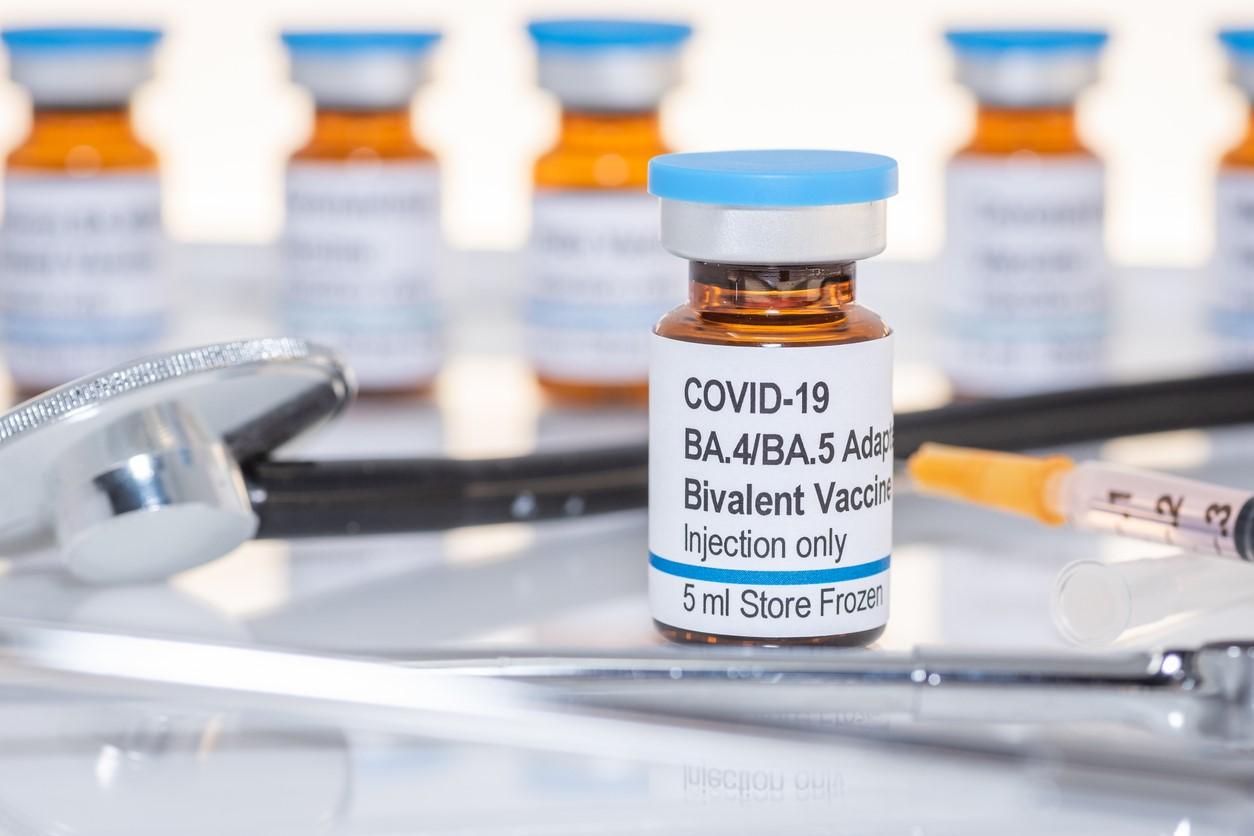Updated bivalent (two-strain) mRNA booster shots, which target the Omicron BA.4/BA.5 sublineages of COVID-19 and the original strain, cut the risk of contracting severe COVID-19 by up to 57%, according to a study published in Morbidity and Mortality Weekly Report today, but most Americans have yet to get the shot since they were made available on Sep 1.
A second study today in the same journal shows the bivalent boosters are particularly effective at preventing hospitalizations in elderly Americans.
Efficacy against hospitalization of 57%
In the first study, researchers calculated vaccine effectiveness (VE) from Sep 13 to Nov 18 using data from the VISION Network.
The researchers compared VE of a bivalent mRNA booster dose (after 2, 3, or 4 monovalent [one-strain] doses) compared with no previous vaccination, and previous receipt of 2, 3, or 4 monovalent-only mRNA vaccine doses, among adults ages 18 years or older with an emergency department/urgent care (ED/UC) visit or hospitalization for a COVID-19–like illness.
In total, 78,303 ED/UC encounters with COVID-19–like illness were included in the study, and 9,009 (12%) case-patients and 69,294 (89%) control patients were identified. Overall, 31% were unvaccinated, and only 5% adults had received a bivalent booster dose, 216 (6%) had received 2 monovalent doses, 1,679 (43%) had received 3 monovalent doses, and 2,010 (51%) had received 4 monovalent vaccine doses.
"VE of a bivalent booster dose (after 2, 3, or 4 monovalent doses) against COVID-19–associated hospitalizations was 57% compared with no vaccination, 38% compared with monovalent vaccination only with last dose 5–7 months earlier, and 45% compared with monovalent vaccination only with last dose ≥11 months earlier," the authors found.
Among 15,527 patient hospitalizations with COVID-19–like illness included in the study, 1,453 (9%) case-patients and 14,074 (91%) control patients were identified, of which 26% were unvaccinated. Again, 5% of adults had received a bivalent booster dose, 49 (6%) had received 2 monovalent doses, 32% had received 3 monovalent doses, and 62% had received 4 monovalent doses.
"In this early study of immunocompetent adults, significant protection from a booster dose of bivalent mRNA COVID-19 vaccine (after receipt of 2, 3, or 4 monovalent doses) compared with no vaccination was found, as well as significant relative benefits of a bivalent booster dose when compared with previous receipt of monovalent doses only," the authors concluded.
Even higher protection in seniors
The second study, based on data from 22 hospitals in 18 states participating in the IVY Network, shows the bivalent booster offers even more protection to adults ages 65 and older whose immune systems are not compromised.
VE against COVID-19–associated hospitalization was estimated by comparing the odds of bivalent booster dose receipt with no COVID-19 vaccination between case-patients and control patients in the test-negative study.
From Sep 8 and Nov 30, the investigators included 798 adults in the analysis (381 case-patients and 417 control patients), with a median age of 76 years. Seventy-four percent of participants had underlying health conditions.
Among the 381 case-patients, 81 (21%) were unvaccinated, 280 (73%) had received 2 or more monovalent-only mRNA vaccine doses, and 20 (5%) had received a bivalent booster dose. Among controls, 14% had been boosted with a bivalent vaccine.
"When compared with unvaccinated patients, VE of a bivalent booster dose in preventing COVID-19–associated hospitalization was 84%," the authors said. "When compared with patients who had received ≥2 monovalent-only mRNA vaccine doses ≥2 months before illness onset, relative VE of a bivalent booster dose was 73%."
The authors said their findings should reinforce the importance of bivalent boosters for older adults, who are most at risk for severe outcomes of COVID-19 infections. Currently bivalent booster dose coverage in the United States remains low among adults, with only 16% of those aged 18 to 64 boosted, and 36% of those 65 and older.
"All eligible persons, especially adults aged ≥65 years, should receive a bivalent booster dose to maximize protection against COVID-19 hospitalization this winter season," the authors concluded.





















